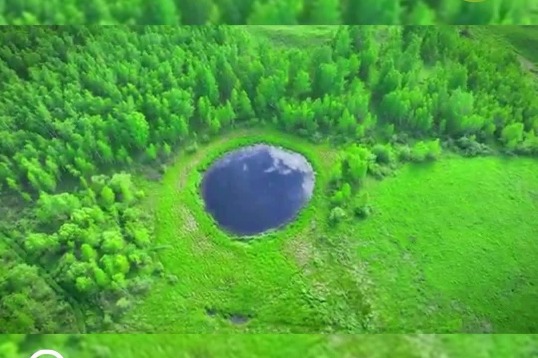Nation well on way to greener future


Increased importance
According to Gong Ke, president of the Institute of Ecological Civilization Research at Nankai University in Tianjin, the central authorities have attached increased importance to ecological civilization for the past decade or so.
Gong made this comment while addressing the ECO Forum Global Guiyang 2021 in Guiyang, capital of Guizhou province, early last month.
In October 2007, ecological civilization was included for the first time in the report to the National Congress of the CPC by former president Hu Jintao.
At the 18th CPC National Congress in 2012, ecological civilization was included as one aspect of a Five-Sphere Integrated Plan. In addition to giving high priority to ecological development, the conference pledged to incorporate ecological civilization in all aspects of economic, political, cultural and social advancement, Gong said.
General Secretary Xi Jinping said in his report to the 19th CPC National Congress in 2017 that building an ecological civilization is vital to sustaining China's development, Gong added.
Moreover, ensuring harmony between humans and nature was listed by Xi at the conference as one of the 14 points forming the basic policy underpinning the Party's efforts to uphold and develop socialism with Chinese characteristics in the new era, Gong said.
To achieve a fundamental improvement in environmental quality by 2035, China will strive to achieve green production and lifestyles in all areas of society, according to a proposal announced in late October after the fifth plenary session of the 19th Central Committee of the CPC.
Wang Yi, a member of the National People's Congress Standing Committee and the NPC's Environmental Protection and Resources Conservation Committee, said the proposal shows that, with stronger governance capabilities, the central authorities have made sustained efforts to further develop Xi Jinping Thought on Ecological Civilization.
Hu Kanping, a researcher at the Chinese Ecological Civilization Research and Promotion Association, said ecological civilization was mentioned in a central government document as early as 2003.
The document, jointly published by CPC Central Committee and the State Council, China's Cabinet, was aimed at boosting forestry development.
Hu Kanping said an ideological system for ecological civilization in China was officially formed after the 18th CPC National Congress, in tandem with Xi Jinping Thought on Ecological Civilization.
"The core and most essential philosophy of ecological civilization is the harmonious coexistence of mankind and nature," Hu Kanping said, adding that the concept is based on lessons drawn from industrial civilization.
At the virtual Leaders Summit on Climate hosted by the United States in April, Xi called for the international community to build a community of life for mankind and nature.
"It has been our constant pursuit that man and nature could live in harmony with each other," he said, delivering a speech via video link in Beijing. "Ecological advancement and conservation have been written into China's Constitution and incorporated into China's overall plan for building socialism with Chinese characteristics."
Since the dawn of industrial civilization, mankind has created massive material wealth. Yet, it has come at a cost of intensified exploitation of natural resources, which disrupted the balance in the Earth's ecosystem and laid bare growing tensions in the human-nature relationship, Xi said.
"In recent years, climate change, biodiversity loss, worsening desertification and frequent extreme weather events have all posed severe challenges to human survival and development," he added.
Hu Kanping said China has realized that the development path for industrial civilization is not sustainable and that "sticking to the path will only lead to a dead end".
Guided by Xi Jinping Thought on Ecological Civilization, the nation has made significant headway with its ecological development.
For example, major cities nationwide experienced fairly good air quality 87 percent of the time on average last year, a rise of 5.8 percentage points from 2015. The average density of PM 2.5 particulate matter in Beijing reached 38 micrograms per cubic meter, down from 80.6 in 2015.
Last year, water quality at all mainstream monitoring stations on the Yangtze River, Asia's longest, rated at or above Grade II for the first time in the nation's five-tier surface water assessment system.
Some 18 percent of land in China has been designated as protected areas, safeguarding 85 percent of key wild animal populations.
Hu Kanping said that in addition to the nation's determination to promote ecological civilization, public participation in green transformation bodes well.
While top-level design and top-down encouragement are vitally important for creating an ecological civilization, this cannot be achieved without public participation, he stressed. If these two factors can be combined, China will be able to create "extraordinary synergy" in promoting the construction of ecological civilization, he added.
"Both the CPC Central Committee and the State Council have been vigorously promoting relevant top-level designs for ecological civilization. This is unprecedented in the history of mankind," Hu Kanping said.




